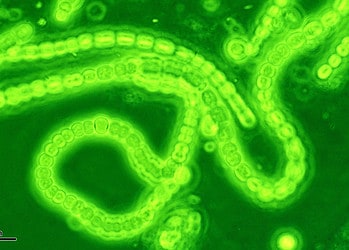Spirulina and chlorella are the two most commercially available algae. They contain high doses of micronutrients and are rich in protein. But not all protein is the same — some protein is better for your muscles than others. A team of researchers have investigated how good algae protein is for your muscles. Spoiler alert: it’s pretty good.

The study started from ethics. More and more people are trying to reduce their intake of animal protein — it’s bad for the environment, it’s bad for the animals, and it’s bad for global warming as well. In fact, cutting down on your meat consumption is one of the most eco-friendly things most people can do. But if you do cut the meat from your diet, you have to replace it with something.
Plant-based proteins have been shown to be a healthy alternative, but we need as many protein sources as possible — especially as plant-based proteins are sometimes different from animal proteins.
This is where the algae comes in. Recently, algae has emerged as a “superfood” — a food that’s rich in fiber, nutrients, and protein, without any major downsides. As always, you should treat any “superfood” claims with skepticism, but several studies have shown that algae can be a very healthy source of nutrients.
But how good is algae for your muscles? A team of researchers from the University of Exeter set out to investigate.
Green is good
The study involved 36 healthy young adults who participated in a randomized, double-blind trial. Participants engaged in resistance leg exercises and then consumed a drink containing 25 grams of protein from fungal-derived mycoprotein, spirulina, or chlorella. Blood and skeletal muscle samples were collected to assess amino acid concentrations and myofibrillar protein synthesis rates. Notably, spirulina showed the most rapid and highest peak in blood amino acid concentrations post-consumption.
Overall, the algae’s ability to stimulate muscle protein synthesis was largely similar to high-quality non-animal derived proteins like mycoprotein. Mycoprotein is a high-quality source of protein and one of the best meat alternatives out there — so this bodes well for algae’s future as a protein source.

This equivalence in efficacy, combined with its environmental advantages, makes algae an attractive option for those committed to reducing meat consumption for ethical and environmental reasons, study author Ino Van Der Heijden explains:
“Our work has shown algae could become part of a secure and sustainable food future. With more and more people trying to eat less meat because of ethical and environmental reasons, there is growing interest in nonanimal-derived and sustainably produced protein. We believe it’s important and necessary to start looking into these alternatives and we’ve identified algae as a promising novel protein source.”
Take it with a grain of salt
However, the study has some limitations. It focused on young adults, which means the finding may not carry over to a more diverse population. For the future, the researchers want to investigate the effects of algae protein consumption in diverse populations, including older adults. Such research would further establish algae’s potential in the context of various dietary needs and health scenarios.
Nevertheless, algae seems to stand out as a good protein source, and one that’s environmentally friendly as well. Although more work must be done to confirm the findings, it seems that algae stands as a viable alternative to animal proteins. Multiple studies have shown that animal protein takes up more land, uses more water, and produces more greenhouse gas emissions than basically any other alternative.
This research not only highlights algae’s potential in supporting muscle health but also its role in shaping a more sustainable and ethical future in nutrition. As the world grapples with the environmental impact of traditional protein sources, algae emerges as a beacon of hope, offering a path towards a more sustainable and health-conscious future.
The paper was published in The Journal of Nutrition.






